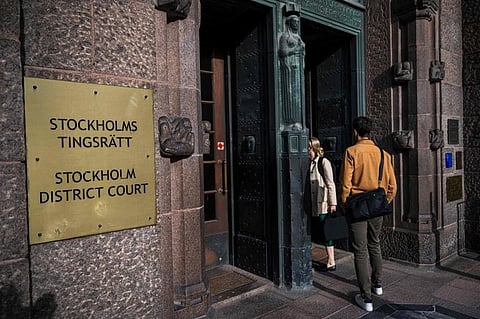
- NEWS
- the EDIT
- COMMENTARY
- BUSINESS
- LIFE
- SHOW
- ACTION
- GLOBAL GOALS
- SNAPS
- DYARYO TIRADA
- MORE

A district court in Stockholm started Tuesday Sweden's biggest trial with two oil executives, accused of complicity in war crimes committed by Sudan's regime, as defendants.
Swede Ian Lundin and Swiss national Alex Schneiter are denying accusations that they asked Sudan's government to make its military responsible for security at the site of one of Lundin Oil's exploration fields, which later led to aerial bombings, killing of civilians and burning of entire villages, according to the prosecution.
Lawyers of the two also claim the prosecution doesn't have any evidence to support their charges.
The two, who were formally named as suspects in 2016, face the formal charge of "complicity in grave war crimes" committed during the rule of Sudanese president Omar al-Bashir.
Lundin was chief executive of family firm Lundin Oil, now known as Orron Energy, from 1998 to 2002, and Schneiter was vice president at the time.
Prosecutors argue that the accused were complicit because Lundin Oil knew that asking Sudan's government to make the military responsible for security meant it would take control of the area by "military force".
"What constitutes complicity in a criminal sense is that they made these demands despite understanding, or in any case being indifferent to, the military and the militia carrying out the war in a way that was forbidden according to international humanitarian law," chief public prosecutor Krister Petersson said.
If convicted, Lundin and Schneiter risk life sentences.
The prosecution has already requested that the two be banned from any business undertakings for 10 years.
It has also asked for the confiscation of 2.4 billion kronor ($218 million) from Orron Energy, equivalent to the profit the company made on the sale of its Sudan operations in 2003.
Torgny Wetterberg, a lawyer for Ian Lundin, told Agence France-Presse on the eve of the trial that the defense disagreed with the prosecution's descriptions of events, and that it had built its case on circumstantial claims with no concrete evidence.
WITH AFP
